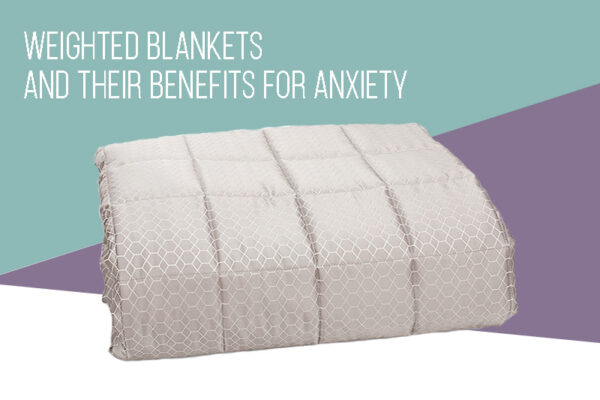All products are selected by our Sleep Tight Weight Blanket editors. If you buy something through our links as an Amazon Associate we earn from qualifying purchases.
Anxiety is a common mental health condition that affects millions of people worldwide. It can manifest in various ways, including persistent worrying, restlessness, and an overwhelming sense of fear or unease. While there are several treatment options available, many individuals are turning to alternative methods to manage their anxiety symptoms. One such method that has gained popularity in recent years is the use of weighted blankets. These blankets, filled with evenly distributed weights, offer a gentle and calming pressure that may have positive effects on anxiety levels. In this article, we will explore the benefits of weighted blankets for anxiety and discuss the scientific evidence behind their effectiveness.
Living with anxiety can be challenging, as it can significantly impact one’s quality of life and overall well-being. People with anxiety often experience heightened levels of stress, difficulty relaxing, and disrupted sleep patterns. Weighted blankets have emerged as a potential tool to help manage anxiety symptoms and promote a sense of calm and relaxation.
Weighted blankets are designed to provide deep pressure stimulation (DPS) to the body, similar to the sensation of a comforting hug or gentle pressure. The even distribution of weights inside the blanket creates a cocooning effect, which may trigger the release of neurotransmitters like serotonin and dopamine. These chemicals are known to regulate mood, reduce anxiety, and promote a sense of relaxation, all of which are crucial for managing anxiety symptoms.
One of the primary benefits of weighted blankets for anxiety is their ability to induce a soothing and calming effect. The deep pressure provided by the blanket stimulates the production of oxytocin, often referred to as the “love hormone.” Oxytocin helps to reduce stress and anxiety levels, promoting a sense of tranquility and emotional well-being. By calming the nervous system, weighted blankets create an optimal environment for individuals with anxiety to relax and feel more at ease.
Moreover, the use of weighted blankets has been found to have a positive impact on the autonomic nervous system, which regulates the body’s response to stress. Individuals with anxiety often have an overactive sympathetic nervous system, which is responsible for the “fight-or-flight” response. The deep pressure stimulation provided by weighted blankets activates the parasympathetic nervous system, which counters the effects of stress and promotes relaxation. This activation leads to a decrease in heart rate, blood pressure, and muscle tension, helping individuals with anxiety experience a greater sense of calm and physical comfort.
Furthermore, weighted blankets can provide a sense of security and reassurance, which is particularly beneficial for individuals with anxiety. The gentle pressure exerted by the blanket mimics the feeling of being held or embraced, creating a soothing and nurturing environment. This can help reduce feelings of fear and promote a greater sense of safety, allowing individuals with anxiety to relax and feel more grounded.
Additionally, weighted blankets can be particularly useful for addressing anxiety-related sleep disturbances. Many individuals with anxiety struggle with falling asleep or staying asleep due to racing thoughts and an overactive mind. Weighted blankets create a calming and cocoon-like environment, which promotes a deeper and more restful sleep. The gentle pressure stimulates the production of melatonin, a hormone that regulates the sleep-wake cycle. By enhancing the secretion of melatonin, weighted blankets can help individuals with anxiety establish healthier sleep patterns and wake up feeling more refreshed.
While the benefits of weighted blankets for anxiety are promising, it is important to note that they may not be suitable for everyone. Individuals with certain medical conditions or sensory sensitivities should consult with their healthcare provider before using a weighted blanket. Additionally, selecting the appropriate weight of the blanket is crucial to ensure safety and effectiveness. As a general guideline, a weighted blanket should be approximately 10% of the user’s body weight.
In conclusion, weighted blankets offer a potential non-pharmacological approach to managing anxiety and promoting relaxation. The deep pressure stimulation provided by these blankets can help reduce anxiety levels, induce a sense of calm, and improve sleep quality. While further research is needed to fully understand the extent of their benefits, weighted blankets can be a comforting and supportive tool for individuals living with anxiety. If you are considering using a weighted blanket, discuss it with your healthcare provider to determine if it may be a suitable addition to your anxiety management plan.


